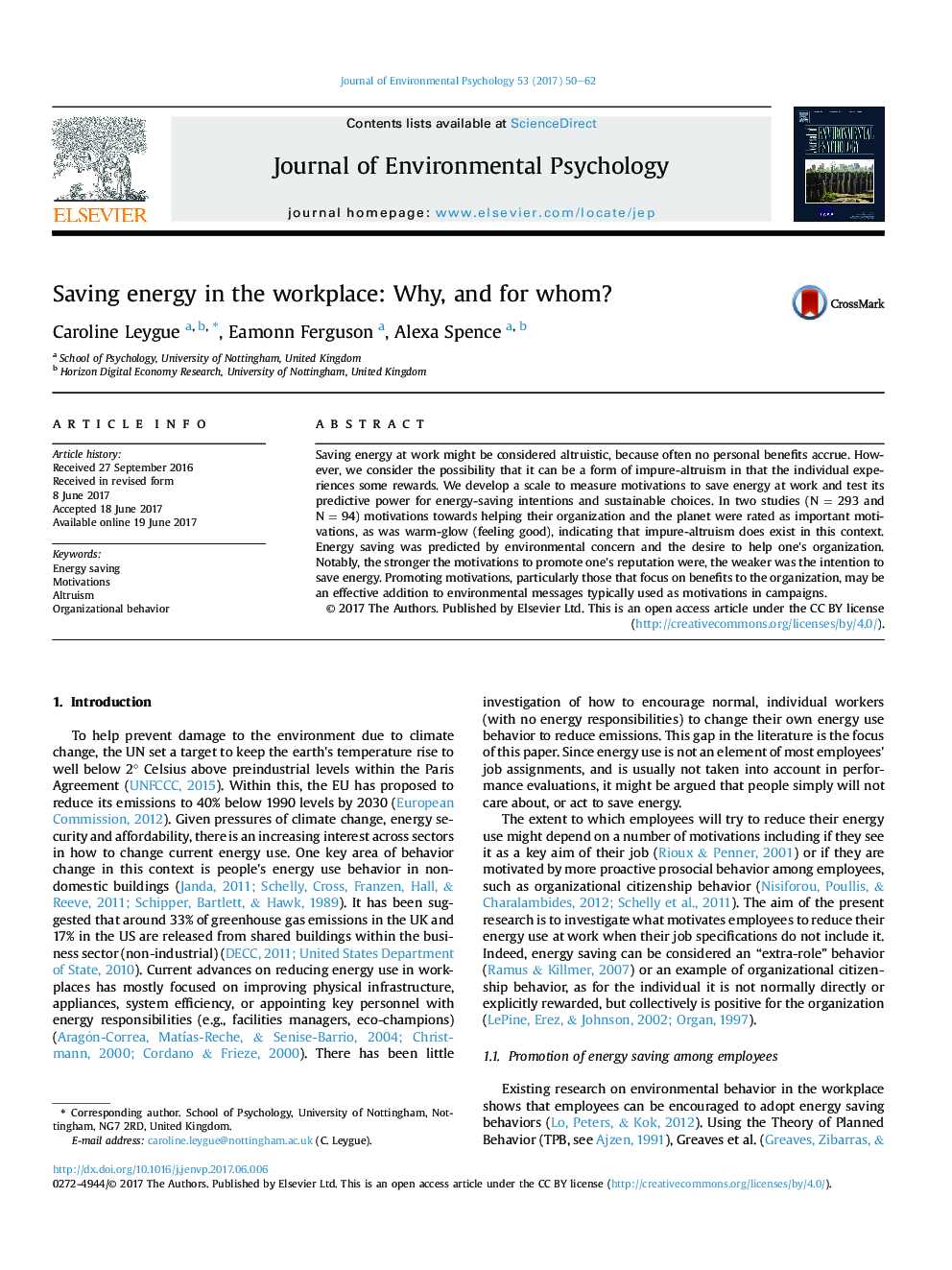| کد مقاله | کد نشریه | سال انتشار | مقاله انگلیسی | نسخه تمام متن |
|---|---|---|---|---|
| 5034876 | 1471741 | 2017 | 13 صفحه PDF | دانلود رایگان |
- Scale measuring motivations to save energy at work was constructed and tested in two studies.
- Most important motivations were environmental concern and helping one's organization.
- Self-oriented motivations exist as well, such as feeling good.
- Reputation building motivation can discourage energy saving behavior.
Saving energy at work might be considered altruistic, because often no personal benefits accrue. However, we consider the possibility that it can be a form of impure-altruism in that the individual experiences some rewards. We develop a scale to measure motivations to save energy at work and test its predictive power for energy-saving intentions and sustainable choices. In two studies (NÂ =Â 293 and NÂ =Â 94) motivations towards helping their organization and the planet were rated as important motivations, as was warm-glow (feeling good), indicating that impure-altruism does exist in this context. Energy saving was predicted by environmental concern and the desire to help one's organization. Notably, the stronger the motivations to promote one's reputation were, the weaker was the intention to save energy. Promoting motivations, particularly those that focus on benefits to the organization, may be an effective addition to environmental messages typically used as motivations in campaigns.
Journal: Journal of Environmental Psychology - Volume 53, November 2017, Pages 50-62
